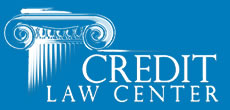Have you received a call from a debt collector and you don’t recognize the debt or loan that they are trying to collect? Consumers all over the U.S. are reporting that they are receiving calls like this. Fake debt collectors pretend to be lawyers, debt collectors and do anything to scare you into paying them, and occasionally, the imposters may have some of your personal information, and they are incredibly slick and will do anything to scam you into paying.
The FTC recently stopped imposters who pretended to be lawyers. These imposters threatened people with lawsuits and jail time to collect debts that didn’t exist.
Common Characteristics of Fake Debt Collectors
- They use names of real small businesses or names that are similar to existing businesses.
- Trying to collect on a debt you are not familiar with or do not owe.
- High pressure to try and scare you into to paying, such as threatening jail time or calling and reporting you to the local law enforcement agency.
- Fake debt collectors may threaten to sue you or tell you that they are suing you
- Refusing to give you an address or telephone number
- Asks you personal financial or sensitive information.
What to do if you think you are speaking to a fake debt collector
- Ask the caller for his name, company, street address and telephone number. Advise the caller that you refuse to discuss the debt, asks them to provide you with a “validation notice.” A validation notice must include the amount of the debt, the name of the creditor, and your rights under the FDCPA. If they refuse to provide this information, DO NOT PAY!
- Do not provide the caller with any financial or sensitive information. Never give out personal information or confirm personal information like bank account, credit card or social security number unless you are sure you are dealing with a legitimate debt collector. These imposters can use your information to commit identity theft, charging your credit cards, or open new credit.
- Contact the creditor. It may be possible that they are calling on a legitimate debt that they have somehow accessed information on. If you believe the debt is legitimate, but you do not believe the caller is a real debt collector, contact the original creditor directly, be sure to share the information with them so they can keep track of the behavior.
- Report the Call to the FTC. Contacting the FTC and your state Attorney General’s Office with the documented information about the suspicious callers, and most States have their own laws in addition to the FDCPA.

